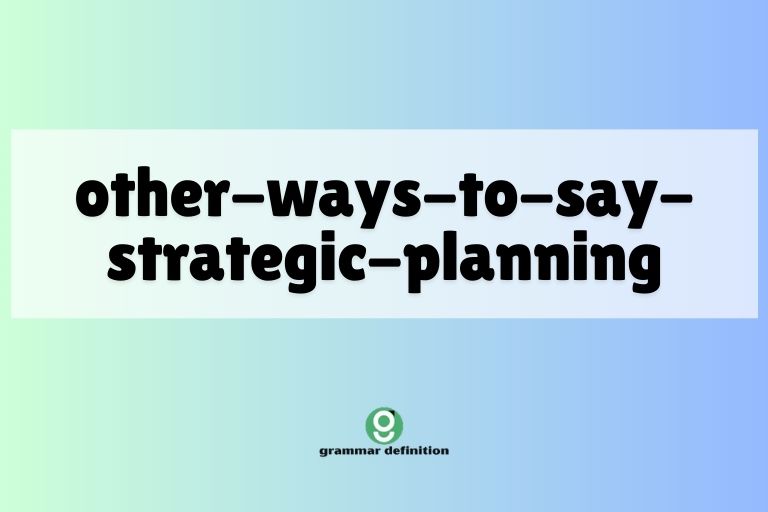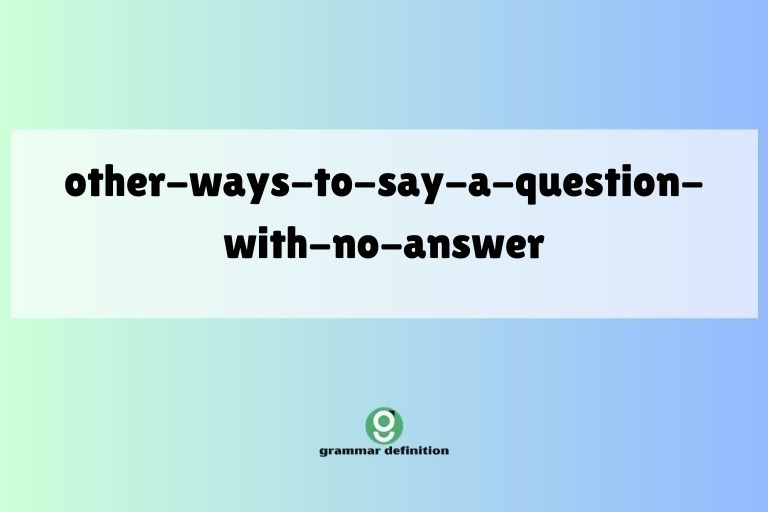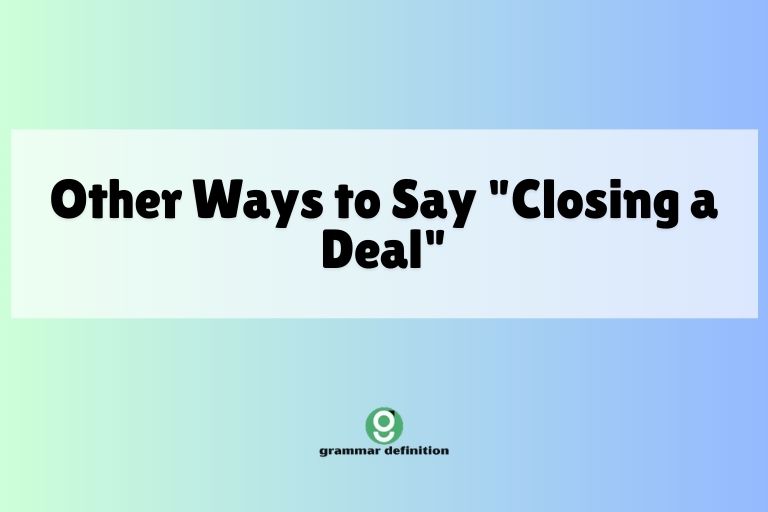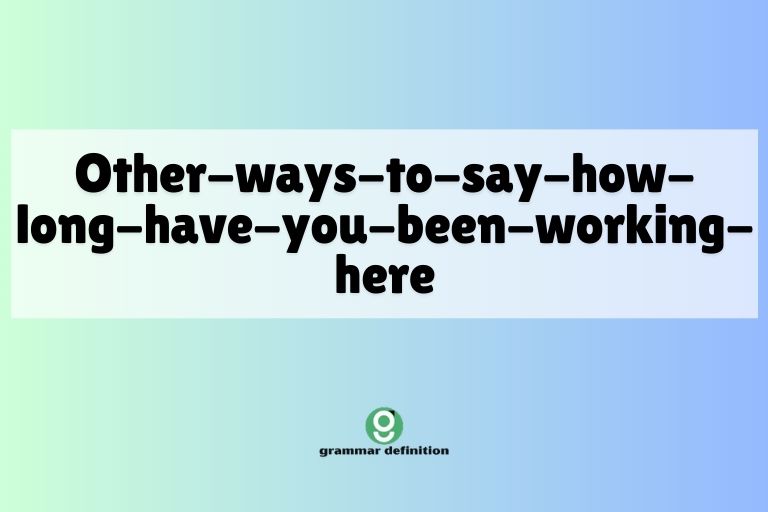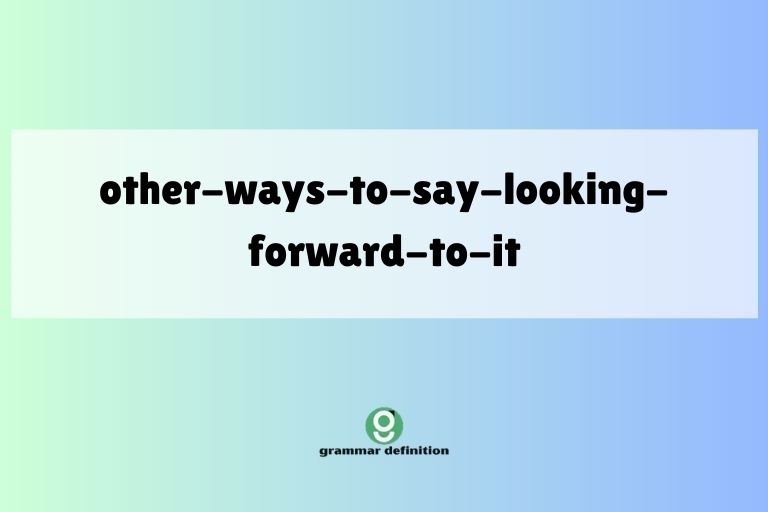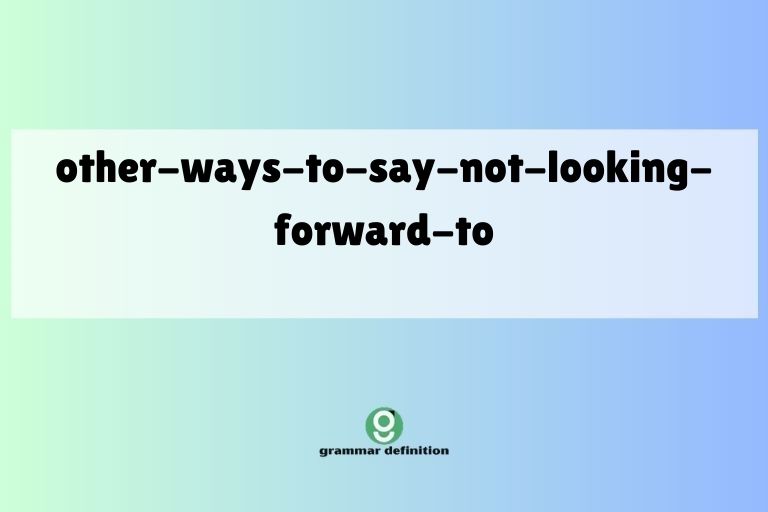Alternative Ways to Express Possibility in English
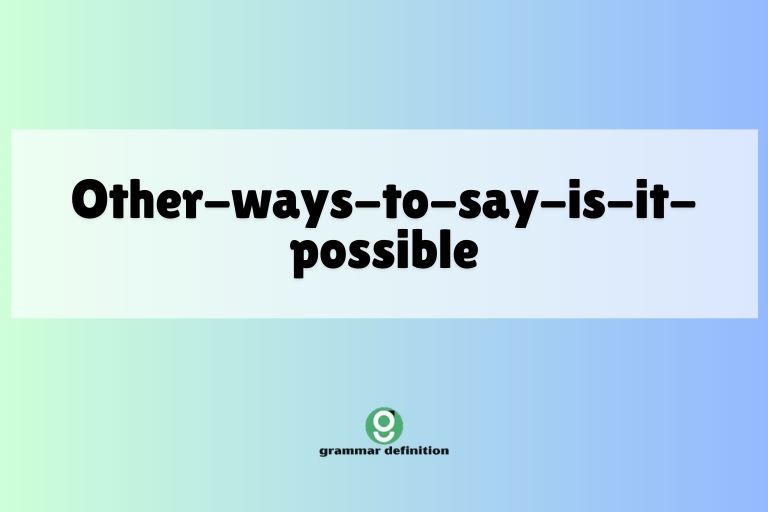
Expressing possibility is a fundamental aspect of communication. While “Is it possible?” is a perfectly acceptable way to inquire about the feasibility of something, English offers a rich variety of alternative phrases that add nuance, formality, or emphasis.
Mastering these alternatives allows for more precise and engaging communication, making your language sound more natural and sophisticated. This article explores various ways to phrase “Is it possible?” providing definitions, examples, usage rules, and practice exercises to help you expand your linguistic toolkit.
This guide will benefit English language learners of all levels, from beginners looking to diversify their vocabulary to advanced speakers aiming to refine their communication skills.
Table of Contents
- Introduction
- Definition of Expressing Possibility
- Structural Breakdown
- Categories of Alternative Expressions
- Examples
- Usage Rules
- Common Mistakes
- Practice Exercises
- Advanced Topics
- FAQ
- Conclusion
Definition of Expressing Possibility
Expressing possibility involves indicating that something might happen or might be true. It’s a crucial function in language, allowing us to discuss potential outcomes, uncertain situations, and hypothetical scenarios. This can be achieved through various grammatical structures, including modal verbs (e.g., might, could, may), conditional clauses (e.g., if…would), and specific phrases that directly question or imply possibility. The choice of expression often depends on the context, the level of formality required, and the speaker’s intention.
The phrase “Is it possible?” is a direct question seeking confirmation about the feasibility of an event or action. However, there are many alternative ways to convey this same idea, each carrying slightly different connotations.
These alternatives can range from formal inquiries suitable for professional settings to informal expressions used in casual conversation. Understanding these nuances allows for effective and appropriate communication in diverse situations.
Structural Breakdown
The basic structure of “Is it possible?” is an interrogative sentence, formed using the auxiliary verb “is,” the pronoun “it,” and the adjective “possible.” The “it” serves as a placeholder, referring to the action or situation being considered. Understanding this basic structure allows us to analyze and adapt other expressions of possibility.
Alternative expressions often involve different grammatical structures, such as:
- Modal Verbs: Using modal verbs like can, could, may, might to express possibility. For example, “Could it be done by tomorrow?”
- Conditional Clauses: Using “if” clauses to explore hypothetical scenarios. For example, “If we work hard, would it be possible to finish on time?”
- Indirect Questions: Rephrasing the question to be less direct. For example, “I was wondering if it’s feasible to complete the project this week.”
- Alternative Adjectives: Replacing “possible” with synonyms like feasible, viable, achievable, or realistic. For example, “Is it feasible to implement these changes?”
Categories of Alternative Expressions
Alternative expressions for “Is it possible?” can be grouped into several categories based on their level of formality and grammatical structure.
Formal Expressions
Formal expressions are suitable for professional settings, academic discussions, and interactions with individuals in positions of authority. These expressions often use more sophisticated vocabulary and grammatical structures.
Informal Expressions
Informal expressions are appropriate for casual conversations with friends, family, and colleagues you know well. These expressions tend to be more relaxed and use simpler language.
Conditional Expressions
Conditional expressions explore the possibility of something happening based on certain conditions. They often involve “if” clauses and modal verbs.
Using Modal Verbs
Modal verbs like can, could, may, might are frequently used to express possibility. They are often combined with other verbs to indicate the likelihood of an event.
Indirect Questions
Indirect questions are a polite way to inquire about possibility without directly asking “Is it possible?”. They often start with phrases like “I was wondering…” or “Do you think…”.
Examples
The following sections provide extensive examples of alternative ways to say “Is it possible?” categorized by formality, conditionality, and grammatical structure. These examples are designed to illustrate the nuances of each expression and provide context for their appropriate use.
Formal Examples
Formal expressions are often used in professional settings or official communications. They require a higher level of vocabulary and grammatical correctness.
The table below provides examples of formal alternatives to “Is it possible?”.
| Formal Expression | Example Sentence |
|---|---|
| Is it feasible? | Is it feasible to implement these changes by the end of the quarter? |
| Is it viable? | Is it viable to launch the product in the current market conditions? |
| Is it achievable? | Is it achievable to meet the project deadline with the current resources? |
| Is it realistic? | Is it realistic to expect such a significant increase in sales within a year? |
| Would it be possible? | Would it be possible to arrange a meeting with the CEO next week? |
| Could it be arranged? | Could it be arranged for the documents to be delivered by courier? |
| Might it be feasible? | Might it be feasible to consider alternative solutions? |
| Is there a possibility? | Is there a possibility of extending the deadline? |
| What are the chances? | What are the chances of securing the funding for this project? |
| To what extent is it possible? | To what extent is it possible to reduce the project costs? |
| Is it within the realm of possibility? | Is it within the realm of possibility that we could acquire their company? |
| Is there any likelihood? | Is there any likelihood that the regulations will be changed? |
| Is it conceivable? | Is it conceivable that we could double our profits next year? |
| Is it within the bounds of possibility? | Is it within the bounds of possibility that we could secure a major contract? |
| What is the probability? | What is the probability of success with this new marketing campaign? |
| Is it within reason? | Is it within reason to expect such a rapid turnaround? |
| Could this be a possibility? | Could this be a possibility if we allocate more resources to the project? |
| Is it within the realm of the doable? | Is it within the realm of the doable to complete the project by the deadline? |
| Is it a prospect? | Is it a prospect that we could expand our business into new markets? |
| Is it under consideration? | Is it under consideration that we might merge with another company? |
| Is it on the cards? | Is it on the cards that we might receive additional funding? |
| Is it subject to change? | Is it subject to change that the regulations might be revised? |
| Is it up for debate? | Is it up for debate that the team might meet the deadline? |
| Is it up for discussion? | Is it up for discussion that the company might acquire another company? |
These formal alternatives provide a more polished and professional tone when inquiring about possibilities in business, academic, or official settings. They indicate respect and a serious approach to the subject.
Informal Examples
Informal expressions are used in casual settings among friends, family, or close colleagues. They often use simpler language and a more relaxed tone.
The table below provides examples of informal alternatives to “Is it possible?”.
| Informal Expression | Example Sentence |
|---|---|
| Could it happen? | Could it happen that we win the lottery? |
| Is there a chance? | Is there a chance we could get tickets to the concert? |
| Think it could work? | Think it could work if we tried a different approach? |
| Do you reckon it’s possible? | Do you reckon it’s possible to finish the game tonight? |
| Any chance of that happening? | Any chance of that happening – them actually showing up on time? |
| Is it doable? | Is it doable to bake a cake in under an hour? |
| Is it likely? | Is it likely that it will rain tomorrow? |
| Can we make it happen? | Can we make it happen to go on vacation this year? |
| Is it on? | Is it on that we’re going to the beach this weekend? |
| Is it a go? | Is it a go that we’re ordering pizza tonight? |
| Is it a possibility? | Is it a possibility that they will come to the party? |
| Is it on the cards? (Informal) | Is it on the cards that we can have a barbecue this weekend? |
| Is it in the cards? | Is it in the cards that we can go to the movies tonight? |
| Is it a runner? | Is it a runner that we can get this done by Friday? |
| Is it on the table? | Is it on the table that we can have ice cream after dinner? |
| Could we swing it? | Could we swing it to get a new TV this month? |
| Is it on the horizon? | Is it on the horizon that we can take a vacation soon? |
| Is it in the pipeline? | Is it in the pipeline that we can get a new car this year? |
| Is it in the works? | Is it in the works that we can renovate the kitchen next year? |
| Is it coming together? | Is it coming together that we can have a family reunion this summer? |
| Is it in our grasp? | Is it in our grasp that we can achieve our goals this year? |
| Is it within our reach? | Is it within our reach that we can buy a house in the next few years? |
| Is it on the cards? | Is it on the cards that we might get a promotion this year? |
| Is it likely to happen? | Is it likely to happen that they will announce the results soon? |
| Is it a potential thing? | Is it a potential thing that we could collaborate on this project? |
These informal alternatives are great for everyday conversations where a relaxed and friendly tone is appropriate. They help to build rapport and avoid sounding overly formal.
Conditional Examples
Conditional expressions explore the possibility of something happening based on certain conditions. They often use “if” clauses and modal verbs.
The table below provides examples of conditional alternatives to “Is it possible?”.
| Conditional Expression | Example Sentence |
|---|---|
| If we worked harder, would it be possible? | If we worked harder, would it be possible to meet the deadline? |
| Provided we have the resources, is it possible? | Provided we have the resources, is it possible to complete the project on time? |
| Assuming we get the funding, is it possible? | Assuming we get the funding, is it possible to expand our operations? |
| If everything goes according to plan, is it possible? | If everything goes according to plan, is it possible to launch the product next month? |
| If we had more time, would it be feasible? | If we had more time, would it be feasible to improve the quality? |
| Were we to start now, would it be achievable? | Were we to start now, would it be achievable to finish by the end of the year? |
| Supposing we invested more, would it be viable? | Supposing we invested more, would it be viable to increase production? |
| On the condition that we receive approval, is it possible? | On the condition that we receive approval, is it possible to proceed with the project? |
| If we streamline the process, could it be done faster? | If we streamline the process, could it be done faster and more efficiently? |
| If we had the right tools, would it be easier? | If we had the right tools, would it be easier to accomplish the task? |
| If we collaborate, could it be more successful? | If we collaborate, could it be more successful to launch the marketing campaign? |
| If we get more support, would it be more likely? | If we get more support, would it be more likely to achieve our goals? |
| If the weather cooperates, will it be possible? | If the weather cooperates, will it be possible to have the event outside? |
| If everyone contributes, is it possible to succeed? | If everyone contributes, is it possible to succeed in this project? |
| If we follow the guidelines, is it feasible? | If we follow the guidelines, is it feasible to get the certification? |
| If we adjust the strategy, would it be more viable? | If we adjust the strategy, would it be more viable to attract more customers? |
| If we invest more resources, is it achievable? | If we invest more resources, is it achievable to increase profitability? |
| If we improve our skills, would it be realistic? | If we improve our skills, would it be realistic to expect a promotion? |
| If we innovate, could it be more competitive? | If we innovate, could it be more competitive in the market? |
| If we plan carefully, is it more probable? | If we plan carefully, is it more probable that we will succeed? |
| If we stay focused, would it be easier to achieve? | If we stay focused, would it be easier to achieve our objectives? |
| If we promote the event more, is it likely to happen? | If we promote the event more, is it likely to happen that more people will attend? |
| If we streamline the process, could it be achieved faster? | If we streamline the process, could it be achieved faster and more effectively? |
| If we address the problem immediately, is it possible to resolve? | If we address the problem immediately, is it possible to resolve the issue quickly? |
| If we have the necessary support, is it within reach? | If we have the necessary support, is it within reach to accomplish our set goals? |
Conditional expressions are useful for exploring potential scenarios and assessing the likelihood of something happening under specific circumstances.
Modal Verb Examples
Modal verbs like can, could, may, might are frequently used to express possibility. They are often combined with other verbs to indicate the likelihood of an event. The table below provides examples of alternatives to “Is it possible?” using modal verbs.
| Modal Verb Expression | Example Sentence |
|---|---|
| Could it be done by tomorrow? | Could it be done by tomorrow if we work overtime? |
| Can we finish it on time? | Can we finish it on time with the current resources? |
| Might it rain later? | Might it rain later, so should we bring an umbrella? |
| May it be possible to reschedule? | May it be possible to reschedule the meeting to next week? |
| Can we afford to buy a new car? | Can we afford to buy a new car this year? |
| Could we see a return on investment soon? | Could we see a return on investment in the next few months? |
| Might we be able to secure funding? | Might we be able to secure funding for the project? |
| May we have the opportunity to present? | May we have the opportunity to present our proposal? |
| Can we expect to meet the quota? | Can we expect to meet the quota this quarter? |
| Could we potentially expand our business? | Could we potentially expand our business next year? |
| Might we see an increase in sales? | Might we see an increase in sales during the holiday season? |
| May we be able to reach a compromise? | May we be able to reach a compromise in the negotiations? |
| Can we realistically achieve this goal? | Can we realistically achieve this goal with the current budget? |
| Could we potentially overcome this challenge? | Could we potentially overcome this challenge with the right strategy? |
| Might we successfully launch the product? | Might we successfully launch the product next month? |
| May we be able to resolve the issue? | May we be able to resolve the issue before the deadline? |
| Can we potentially improve the quality? | Can we potentially improve the quality of the product? |
| Could we see a rise in customer satisfaction? | Could we see a rise in customer satisfaction with the new service? |
| Might we be able to secure the contract? | Might we be able to secure the contract if we offer a better price? |
| May we have the chance to collaborate? | May we have the chance to collaborate on this project together? |
| Can we anticipate a positive outcome? | Can we anticipate a positive outcome from this initiative? |
| Could we expect to see significant growth? | Could we expect to see significant growth in the next few years? |
| Might we be able to implement the changes? | Might we be able to implement the changes by the end of the week? |
| May we have the opportunity to participate? | May we have the opportunity to participate in the upcoming conference? |
| Can we potentially exceed expectations? | Can we potentially exceed expectations with this new product? |
Using modal verbs adds nuance to the expression of possibility, indicating varying degrees of certainty and likelihood.
Indirect Question Examples
Indirect questions are a polite way to inquire about possibility without directly asking “Is it possible?”. They often start with phrases like “I was wondering…” or “Do you think…”.
The table below provides examples of indirect questions that express the same idea.
| Indirect Question | Example Sentence |
|---|---|
| I was wondering if it’s feasible. | I was wondering if it’s feasible to complete the project this week. |
| Do you think it’s possible? | Do you think it’s possible to get a raise this year? |
| I’m curious if it’s achievable. | I’m curious if it’s achievable to meet our sales targets. |
| Would you happen to know if it’s viable? | Would you happen to know if it’s viable to launch the new product in the fall? |
| I’d like to know if it’s realistic. | I’d like to know if it’s realistic to expect such a high return on investment. |
| Could you tell me if it’s likely? | Could you tell me if it’s likely to rain tomorrow? |
| I’m not sure if it’s doable. | I’m not sure if it’s doable to finish the report by Monday. |
| Have you any idea if it’s within the realm of possibility? | Have you any idea if it’s within the realm of possibility to acquire their company? |
| I’m just wondering if it’s on the cards. | I’m just wondering if it’s on the cards that we might get a bonus this year. |
| I’d be interested to know if it’s a prospect. | I’d be interested to know if it’s a prospect that we could expand into new markets. |
| I wanted to ask if it’s under consideration. | I wanted to ask if it’s under consideration that we might merge with another company. |
| I’m trying to find out if it’s subject to change. | I’m trying to find out if it’s subject to change that the regulations might be revised. |
| I’m investigating whether it’s up for debate. | I’m investigating whether it’s up for debate that the team might meet the deadline. |
| I’m checking to see if it’s up for discussion. | I’m checking to see if it’s up for discussion that the company might acquire another company. |
| I aim to know if it is in the pipeline. | I aim to know if it is in the pipeline that we can get a new car this year. |
| I want to know if it is in the works. | I want to know if it is in the works that we can renovate the kitchen next year. |
| I’m curious to know if it is coming together. | I’m curious to know if it is coming together that we can have a family reunion this summer. |
| I’m keen to know if it is in our grasp. | I’m keen to know if it is in our grasp that we can achieve our goals this year. |
| I need to know if it is within our reach. | I need to know if it is within our reach that we can buy a house in the next few years. |
| I’m trying to ascertain if it is likely to happen. | I’m trying to ascertain if it is likely to happen that they will announce the results soon. |
| I’m inquiring to know if it is a potential thing. | I’m inquiring to know if it is a potential thing that we could collaborate on this project. |
| I’m wanting to know if it is within our capabilities. | I’m wanting to know if it is within our capabilities to take on this project. |
| I’m keen to learn if it is a viable option. | I’m keen to learn if it is a viable option to expand our market share. |
| I’m here to ask if it is a possible solution. | I’m here to ask if it is a possible solution to the problem we are facing. |
| I’m gathering information if it is a potential strategy. | I’m gathering information if it is a potential strategy to boost sales. |
Indirect questions are a more subtle and polite way to inquire about possibility, making them suitable for various social and professional contexts.
Usage Rules
When choosing an alternative to “Is it possible?”, consider the following usage rules:
- Formality: Match the level of formality to the context. Use formal expressions in professional settings and informal expressions in casual conversations.
- Audience: Consider your audience. Use language that is appropriate for their level of understanding and their expectations.
- Context: Take the context into account. The specific situation may call for a particular type of expression.
- Nuance: Pay attention to the nuances of each expression. Some expressions may imply a higher or lower degree of certainty.
- Grammar: Ensure that your grammar is correct. Incorrect grammar can undermine your credibility.
Common Mistakes
Common mistakes when expressing possibility include:
| Incorrect | Correct | Explanation |
|---|---|---|
| Is possible to do it? | Is it possible to do it? | The pronoun “it” is necessary as a placeholder. |
| Can to do it? | Can we do it? | The modal verb “can” should be followed directly by the base form of the verb. |
| I wonder if possible. | I wonder if it’s possible. | The phrase requires a verb and the pronoun “it.” |
| It is possible that I will can go. | It is possible that I will be able to go. | Avoid using two modal verbs together. Use “be able to” instead of “can” after “will.” |
| May be I will go. | Maybe I will go. | “May be” is a verb phrase meaning “might be.” “Maybe” is an adverb meaning “perhaps.” |
Practice Exercises
Test your understanding with the following practice exercises. Choose the best alternative to “Is it possible?” for each sentence.
| Question | Answer |
|---|---|
| 1. ______ to finish the project by the deadline if we work overtime? | Could we finish the project by the deadline if we work overtime? |
| 2. I was wondering ______ to get a reservation at that restaurant. | I was wondering if it’s possible to get a reservation at that restaurant. |
| 3. ______ that we win the lottery? | Is there a chance that we win the lottery? |
| 4. ______ to implement these changes by the end of the quarter? (Formal) | Is it feasible to implement these changes by the end of the quarter? |
| 5. If we had more resources, ______ easier? | If we had more resources, would it be easier? |
| 6. Do you think ______ to meet our sales targets this year? | Do you think it’s possible to meet our sales targets this year? |
| 7. ______ that we can have a barbecue this weekend? | Is it on the cards that we can have a barbecue this weekend? |
| 8. ______ to secure funding for the project? | Might we be able to secure funding for the project? |
| 9. Assuming we get approval, ______ to proceed with the plan? | Assuming we get approval, is it possible to proceed with the plan? |
| 10. ______ to launch the product in the current market conditions? (Formal) | Is it viable to launch the product in the current market conditions? |
Answers: 1. Could we 2. if it’s possible 3. Is there a chance 4. Is it feasible 5. would it be 6. it’s possible 7. Is it on the cards 8. Might we be able 9. is it possible 10. Is it viable
Advanced Topics
For advanced learners, consider exploring the following topics:
- Subjunctive Mood: Using the subjunctive mood to express hypothetical possibilities.
- Inversion: Using inversion to create more formal and emphatic questions about possibility.
- Ellipsis: Using ellipsis to omit words in certain contexts while still conveying the meaning of possibility.
- Rhetorical Questions: Understanding how rhetorical questions can imply possibility or impossibility.
FAQ
Here are some frequently asked questions about expressing possibility:
- What is the difference between “possible” and “probable”?
“Possible” means that something could happen, while “probable” means that something is likely to happen. “Probable” implies a higher degree of certainty than “possible.” For example, “It is possible that it will rain tomorrow” suggests a chance of rain, while “It is probable that it will rain tomorrow” suggests that rain is likely.
- When should I use a formal expression instead of an informal one?
Use formal expressions in professional settings, academic discussions, and interactions with individuals in positions of authority. Informal expressions are appropriate for casual conversations with friends, family, and close colleagues. The key is to match the level of formality to the context and your audience.
- How can I make my questions about possibility sound more polite?
Use indirect questions instead of direct questions. For example, instead of asking “Is it possible to reschedule the meeting?”, you could ask “I was wondering if it’s possible to reschedule the meeting.” This softens the directness of the question and makes it sound more considerate.
- What is the role of modal verbs in expressing possibility?
Modal verbs like can, could, may, and might are used to indicate varying degrees of possibility. “Might” and “could” often express a lower degree of certainty than “can” and “may.” The choice of modal verb depends on the level of confidence you want to convey.
- How do conditional clauses affect the expression of possibility?
Conditional clauses allow you to explore the possibility of something happening based on certain conditions. By using “if” clauses, you can specify the circumstances under which something might be possible. This adds nuance and precision to your expression of possibility.
- What is the difference between “feasible,” “viable,” and “achievable”?
While these words are often used interchangeably, there are subtle differences. “Feasible” generally means practical or workable. “Viable” means capable of succeeding or developing. “Achievable” means able to be brought about with effort. For example, a plan might be feasible (practical to implement), but not viable (unlikely to succeed in the long run), or it might be viable but not achievable (requiring more resources than are available).
- Can you use multiple modal verbs together to express possibility?
Generally, it’

